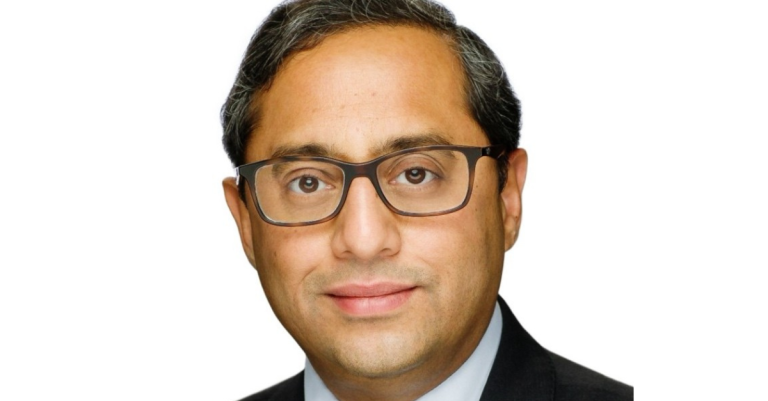In the February 2025 edition of The ICR D.C. Insider, we share our insights and analysis about developments in Washington that could have an immediate and long-term impact on your business. Indeed, as the Trump Administration continues to move forward with a combination of appointments to key departments and agencies, they have already issued hundreds of Executive Orders (EOs) to implement their policies. Below, we have summarized key elements of both.
Appointments & Nominees
- Treasury Department – Former hedge fund founder and manager, Scott Bessent was sworn in as the 79th Secretary of the Treasury on January 28th. He is deeply knowledgeable about the global capital markets and supportive of the raft of economic priorities that President Trump has articulated, including tariffs, reauthorization of the 2017 Tax Cuts and Jobs Act (with modifications), and is expected to take a leading role in the upcoming negotiations with Congress with respect to the budget reconciliation package.
- Internal Revenue Service (IRS) – Former Rep. Billy Long (R-Mo.) has been nominated to serve as the IRS Commissioner. A six-term congressman, real estate broker, and former auctioneer, Long spent time out of Congress consulting with businesses around the Employee Retention Tax Credit (ERTC), a program that has been under scrutiny for fraud.
- Consumer Financial Protection Bureau (CFPB) – Secretary Bessent is also serving as the Acting Director of the CFPB, following the termination of Rohit Chopra, the previous leader. Bessent directed the agency’s staff to halt all rules and enforcement actions.
- Commerce Department – Howard Lutnick, the CEO of Wall Street firm Cantor Fitzgerald, is on track to be confirmed as the Secretary of Commerce. Lutnick, who raised substantial campaign contributions for President Trump, is a strong supporter of tariffs, and in the private sector was a cryptocurrency supporter. Like the President, he is expected to take a hard line against China, especially given Commerce’s oversight of the Bureau of Industry and Security (BIS), which is in charge of safeguarding U.S. technology and enforcing export controls.
- Justice Department – Former Florida Attorney General Pam Bondi (and Trump confidant) will head the Justice Department. From a business community perspective, she is seen as more of a traditional Republican appointee, but this should not be read as tolerant of corporate misbehavior.
- Antitrust Division – Gail Slater has been nominated as Assistant Attorney General for Antitrust. She was a policy advisor for Senator (now Vice President) JD Vance, served as Special Assistant to the President for Technology, Telecommunications and Cybersecurity in the first Trump Administration, and earlier worked at the Federal Trade Commission (FTC).
- Health & Human Services (HHS) – Robert F. Kennedy Jr., has been nominated by President Trump to lead the department. His previous comments on a range of public health, vaccines/autism, food, and other issues have made this appointment somewhat controversial – a situation exacerbated by his lineage as scion of the Kennedy family (many of whom have denounced him). Nevertheless, he’s on track to be confirmed. President Trump and many Senate Republicans are attracted to his anti-big pharmaceutical industry stance and his advocacy for a program To Make America Healthy Again.
- Food and Drug Administration (FDA) – Johns Hopkins University surgeon Marty Makary has been nominated to lead the Food and Drug Administration (FDA). Dr. Makary is a prolific medical researcher, bucked the consensus on the necessity of frequent vaccination during the COVID-19 pandemic, and has decried the overprescribing of drugs, the use of pesticides on foods, and the undue influence of pharmaceutical and insurance companies over doctors and government regulators.
- Center for Medicare & Medicaid Services (CMS) – Cardiothoracic surgeon and former TV host Mehmet Oz has been nominated to lead the Centers for Medicare & Medicaid Services. Oz, who graduated from Harvard and earned a joint M.D. and MBA from the University of Pennsylvania, clashed with the medical establishment during the pandemic as well as around other matters.
- Securities and Exchange Commission (SEC) – Former SEC Commissioner Paul Atkins has been nominated to serve as Chairman of the Commission. Atkins is considered pro-business in his orientation and generally expected to pursue policies opposite of those of former Chair Gary Gensler. Having previously served as a Commissioner, and a staffer before then, Atkins knows how the Commission works and will be able to act quickly once confirmed. He is generally viewed as favoring regulations that are clear and then enforcing them (this is especially true with respect to cryptocurrencies), with a focus on punishing individual wrongdoers rather than corporations. Expansive readings of SEC rules that have garnered scrutiny from courts are likely to diminish greatly, as will focus on non-core financial materiality (i.e., DEI, climate change, ESG, etc.).
- Separately, politically appointed leaders at the SEC will now have to approve all requests for a formal investigation prior to launch. This authority was previously delegated to the staff level.
- Federal Trade Commission (FTC) – Andrew Ferguson is the new Chairman of the FTC. President Trump elevated him from his earlier role as a Republican member of the Commission (meaning he didn’t need a separate confirmation hearing). Ferguson, who often publicly disagreed with Biden-era Chair Lina Khan, issued at least 35 dissenting statements relating to specific cases and general FTC actions. He has criticized the FTC for overstepping its authority, hinted at limiting antitrust enforcement (such as pulling back on the FTC’s broad ban on non-compete agreements), and expressed a desire to apply pressure on Big Tech.
- Commodity Futures Trading Commission (CFTC) – Republican Commissioner Caroline Pham was named Acting Chair by President Trump and is thought to be among the candidates who will serve on a permanent basis. Pham clashed frequently and publicly with CFTC staff and other commissioners during the prior Administration. Pham has been a proponent of providing regulatory clarity for digital asset companies, which the CFTC is poised to potentially play a greater role in regulating. She’s floated the idea of using “regulatory sandboxes” as a way to help companies test, for a short period of time, the viability of their products and services under close regulatory supervision but without necessarily going through its full registration and compliance process.
- Labor Department – Former Rep. Lori Chavez-DeRemer (R-Ore) has been nominated to Secretary of Labor. She is a favored candidate of organized labor and a supporter of the PRO Act, legislation that would make it easier to unionize on a federal level. Pending her confirmation, Vince Micone has been named Acting Secretary of Labor. Micone, a career federal employee, served on Trump’s 2016 presidential transition team. The Secretary will have the power to begin a regulatory overhaul at the department, including moving to repeal major Biden administration rules. That will likely include regulations on overtime pay, socially conscious investing, and determining when workers can be treated as independent contractors rather than employees.
- National Labor Relations Board (NLRB) – Marvin Kaplan, who was a Republican Board member, was named Acting Chair. Trump fired the previous Chair, Gwynne Wilcox, a Democrat and the terminated Jennifer Abruzzo, the NLRB’s general counsel.
- Equal Employment Opportunity Commission (EEOC ) – Andrea Lucas – a Republican Commissioner – has been named Acting Chair of the EEOC. Additionally, President Trump dismissed two of the three Democrats on the Commission, Jocelyn Samuels and Charlotte Burrows, and removed the EEOC’s general counsel, Karla Gilbride, who oversaw civil actions against employers, including on discrimination claims from LGBTQ+ and pregnant workers.
Executive Orders (EOs)
- Tariffs – President Trump threatened – and then suspended until early March – tariffs of 25% on Mexico and Canada, while imposing 10% tariffs on China (in addition to those that already exist) and the end of de minimis treatment for shipments under $800. Not surprisingly, China has responded with its own threat of tariffs – leading to calls and other outreach between President Trump and Chinese President Xi Jinping.
- Trade – An “America First” Trade Policy Executive Order requires a variety of reports and recommendations to be delivered to the President by April 1, 2025, on:
- The causes of the persistent trade deficit.
- How to establish the External Revenue Service.
- Unfair foreign trade practices.
- The impact of the United States-Mexico-Canada Agreement (USMCA).
- Currency manipulation.
- The reciprocity of existing trade agreements.
- Antidumping/Countervailing Duties (AD/CVD) policies.
- Countries for bilateral or sectoral trade negotiations.
- The de minimis trade exemption.
- Discriminatory extraterritorial taxes.
- The impact of trade agreements on federal procurement.
- The China Phase One deal.
- The results of the four-year necessity review of the China 301 tariffs.
- Whether further Section 301 investigations on China are warranted, legislative proposals to revoke China Permanent Normalized Trade Relations (PNTR).
- Reciprocity of China’s treatment of intellectual property rights.
- Whether further Section 232 investigations are warranted and whether existing Section 232 product exclusions are effective.
- Improvements to U.S. export control authorities.
- The connected vehicle rulemaking.
- The Biden Administration’s outbound investment EO and final rule.
- The impact of foreign subsidies on procurement.
- Migration and fentanyl flows from Canada, Mexico, and China.
- An American Sovereign Wealth Fund – Initiated the development of a U.S. sovereign wealth fund. The Treasury and Commerce Departments will take steps to create a sovereign wealth fund, that could be used to fund new government projects and investments, including a possible acquisition of TikTok. The new fund could be formed in the next 12 months and could be used to finance major government projects and fund strategic investments in critical areas like supply chains.
- Renewable Energy – This EO directs a full review of wind leasing and permitting practices, and pauses all “consideration of any area in the OCS (Outer Continental Shelf) for any new or renewed wind energy leasing” as well as “approvals, rights of way, permits, leases, or loans for onshore or offshore wind projects pending” review. The EO stops just short of revoking existing leases, instead directing “the Secretary of the Interior… [to] conduct a comprehensive review of the ecological, economic, and environmental necessity of terminating or amending any existing wind energy leases, identifying any legal bases for such removal, and submit… recommendations to the President.”
- Artificial Intelligence – Directs the Office of Management and Budget (OMB) to, within 60 days (mid-March), revise the Biden Administration’s OMB Memoranda M-24-10 (guidance for agencies utilizing AI) and M-24-18 (requirements for federal agencies acquiring AI). The Trump Administration says that EO “hinders AI innovation and imposes onerous and unnecessary government control over the development of AI.” The Trump EO (formally titled Removing Barriers to American Leadership in Artificial Intelligence) directs the Assistant to the President for Science and Technology (APST), the Special Advisor for AI and Crypto, and the Assistant to the President for National Security Affairs (APNSA) to, within 180 days, develop and submit to the President an AI action plan.
- Digital Financial Technology – Establishes the Presidential Working Group on Digital Asset Markets to strengthen U.S. leadership in digital finance and will be tasked with developing a Federal regulatory framework governing digital assets, including stablecoins, and evaluating the creation of a strategic national digital assets stockpile. The Working Group will be chaired by the White House AI & Crypto Czar (David Sacks, a Silicon Valley venture capital investor) and include the Secretary of the Treasury, the Chairman of the Securities and Exchange Commission, and the heads of other relevant departments and agencies. The EO prohibits agencies from undertaking any action to establish, issue, or promote central bank digital currencies (CBDCs). Also, the EO revokes the Biden Administration’s Digital Assets Executive Order and the Treasury Department’s Framework for International Engagement on Digital Assets which suppressed innovation and undermined U.S. economic liberty and global leadership in digital finance.



